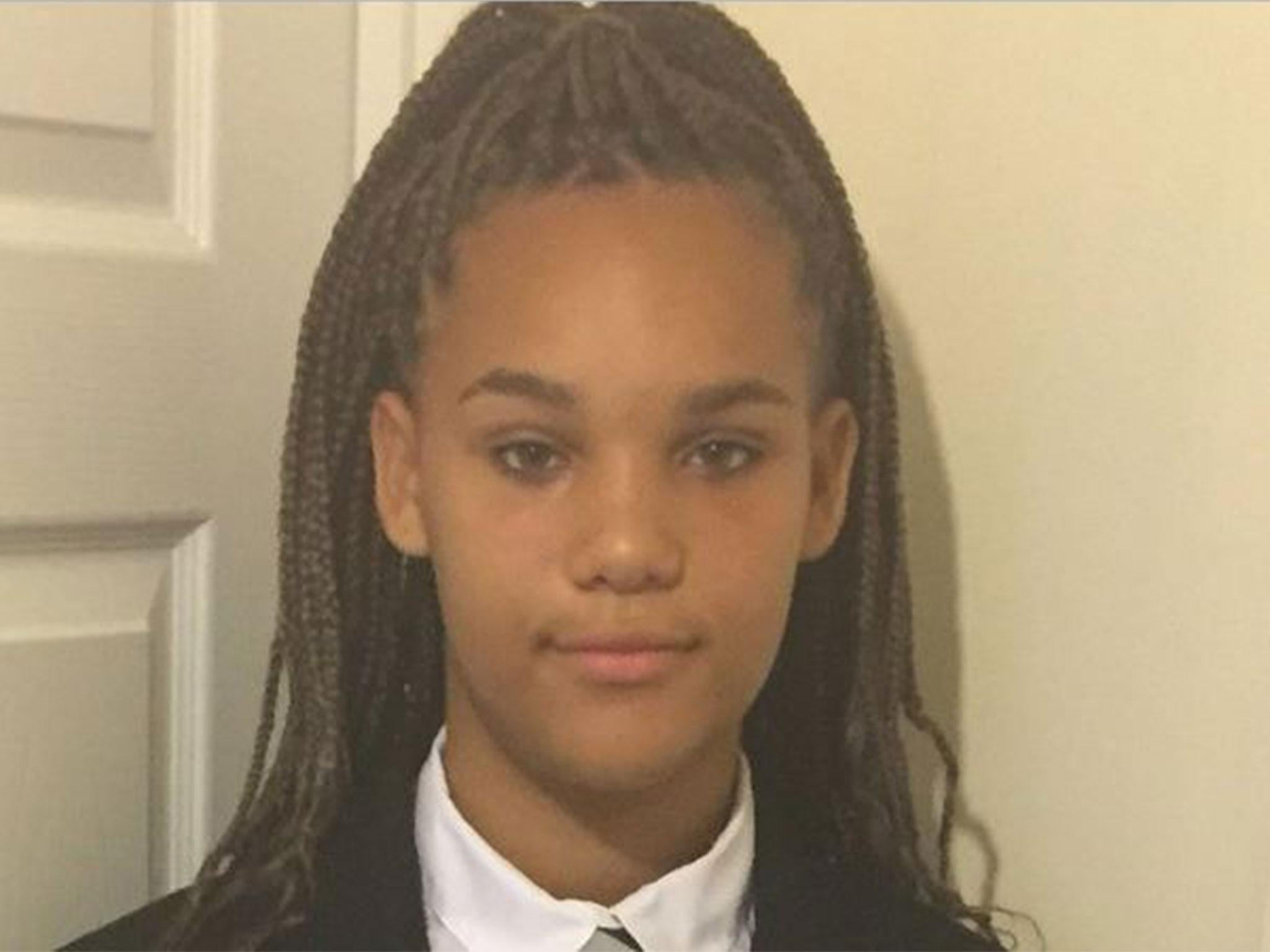School's retreat over Afro braids ban hailed as 'victory for all black and ethnic minority students'
Fulston Manor School insists its request for Chyna Cowie-Sullivan to remove her braids was 'not racially or culturally motivated'

Your support helps us to tell the story
From reproductive rights to climate change to Big Tech, The Independent is on the ground when the story is developing. Whether it's investigating the financials of Elon Musk's pro-Trump PAC or producing our latest documentary, 'The A Word', which shines a light on the American women fighting for reproductive rights, we know how important it is to parse out the facts from the messaging.
At such a critical moment in US history, we need reporters on the ground. Your donation allows us to keep sending journalists to speak to both sides of the story.
The Independent is trusted by Americans across the entire political spectrum. And unlike many other quality news outlets, we choose not to lock Americans out of our reporting and analysis with paywalls. We believe quality journalism should be available to everyone, paid for by those who can afford it.
Your support makes all the difference.A school that ordered a pupil to remove her Afro braid extensions has backtracked on its decision and agreed to update its uniform policy, in what has been hailed a “victory for all black, mixed-race and ethnic minority students”.
Chyna Cowie-Sullivan, a 14-year-old student at Fulston Manor School in Kent, was told to return her hair to a “normal” style on the first day of the new school term, since it was in breach of school rules.
Her mother, Leanne Sullivan, challenged the action, arguing it did not tie in with the schools equality and diversity policy and demanding the school review its “outdated” policy.
Launching a petition that garnered more than 30,000 signatures, Ms Sullivan argued that the hairstyle reflected her daughter’s cultural background urged Fulston Manor to include Afro hairstyles within its accepted uniform guidelines.
School governors have now agreed to “remove all the previously stated examples of what might be seen to constitute an ‘extreme hairstyle’ from the school’s uniform policy”.
Ms Sullivan has since been informed that “a single designated senior member of staff” will be responsible for determining whether or not pupils’ hairstyles are appropriate from now on.
Speaking to i, Ms Sullivan said the result was “a victory for all black, mixed race and ethnic minority students country-wide”.
She said: “Through our united voice, we changed something that will perhaps make a difference to many students’ lives and encourage our youngsters to embrace and celebrate their cultures in a positive way.”
The school’s policy in its current form states that “extremes of hairstyles are not permitted in school”, and gives examples of “inappropriate” styles as “extensions, beading, braiding and cuts shorter than number two [shaved]”.
However, Fulston Manor’s headteacher Alan Brookes stressed in an email to Ms Sullivan that “at no point was there anything that could be construed as racially or culturally motivated” in the school’s reaction to Chyna’s hairstyle.
He added that “many students in the school… have worn braided hair for many years without challenge” and accused Ms Sullivan of suggesting the school “espoused a racist philosophy” which was “offensive” to the school body.
His comments sparked a row over what the school deemed as “appropriate”, since the school had not previously raised concerns when Chyna’s hair had been chemically straightened away from its natural afro form.
Ms Sullivan noted that a growing number of girls are choosing to wear their hair in its natural, afro form and argued that the school should review its uniform policy in order to not discriminate against them.